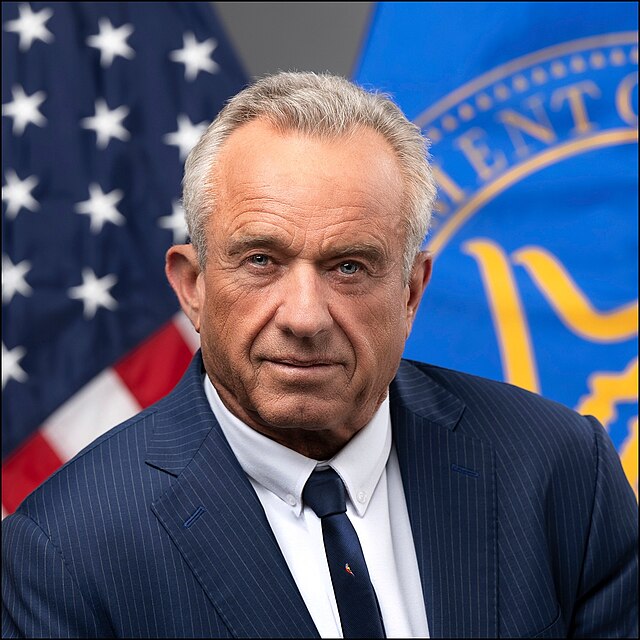- RFK, Jr Must Go to Save Serious Reform
Robert F. Kennedy Jr. has positioned himself as the country’s loudest critic of vaccines, Big Pharma, and corporate influence on public health. There’s no denying that many Americans share his instinct that something is broken. Our healthcare system is outrageously expensive, the pharmaceutical industry often puts profit above patients, and food policy is deeply entangled with corporate lobbying. These problems demand a closer look.
But Kennedy is the wrong messenger. His extreme rhetoric and conspiratorial claims don’t just distract from genuine issues — they actively undermine them. If one is serious about reform, the first step should be recognizing that Kennedy’s reputation makes it easier for defenders of the status quo to dismiss all critique as “anti-science.” Keeping him in the spotlight makes it harder, not easier, to hold powerful institutions accountable.
The better path forward is to listen to experts who question the system from within — professionals who combine deep knowledge with a willingness to challenge flawed policies and industry influence. Here are five such figures who embody *healthy skepticism* without crossing into dangerous territory.
- Dr. Peter Hotez, MD, PhD (Rockefeller University)
Dean of the National School of Tropical Medicine at Baylor College of Medicine, Hotez earned his MD from Weill Cornell Medical College and his PhD in molecular parasitology from Rockefeller University. He has built his career developing vaccines for neglected diseases that don’t get Big Pharma’s attention because they don’t generate profits. He has criticized both government and industry for failing to prioritize global health needs. Unlike Kennedy, however, Hotez understands vaccines are essential tools — his critique is about inequity, not conspiracies.
- Dr. Atul Gawande, MD, MPH (Harvard University)
A practicing surgeon with a Doctor of Medicine (MD) from Harvard Medical School and a Master of Public Health (MPH) from the Harvard T.H. Chan School of Public Health, Gawande has become one of the most influential voices on medical reform. His books, such as *Being Mortal*, highlight the systemic problems in U.S. healthcare: overtreatment, inefficiency, and lack of focus on patient dignity. Gawande shows that calling out these failures isn’t anti-medicine; it’s pro-human.
- Dr. Marion Nestle, PhD, MPH (University of California, Berkeley)
Nestle earned both her PhD in molecular biology and her Master of Public Health in nutrition at the University of California, Berkeley. As a longtime nutrition scholar and author of *Food Politics*, she has documented for decades how “Big Food” shapes everything from government dietary guidelines to university research. She exposes the conflict of interest between food corporations and public health while still grounding her arguments in rigorous science. Her work helps us see how industry marketing, not nutrition, drives what ends up on our plates.
- Dr. Vinay Prasad, MD (University of Chicago), MPH (Johns Hopkins University)
A hematologist-oncologist and professor of epidemiology and biostatistics at UCSF, Prasad earned his MD from the University of Chicago’s Pritzker School of Medicine and his Master of Public Health from Johns Hopkins University. He has written extensively on the waste and harm caused by poorly tested treatments and excessive screening. His book *Ending Medical Reversal* highlights how medical practice often runs ahead of evidence, leaving patients exposed to interventions that may not help. Prasad is not against medicine — he’s against bad medicine.
- Dr. Aaron Carroll, MD (University of Pennsylvania), MS (University of Washington)
A pediatrician and health policy researcher at Indiana University, Carroll earned his MD from the University of Pennsylvania and his Master of Science in health services research from the University of Washington. He is known for calmly breaking down the evidence behind health claims. Whether it’s fad diets, wellness myths, or overblown scares, he helps the public separate signal from noise. Carroll’s skepticism builds trust by showing how science can be both honest and humble.
- Why This Matters
The current system does need fixing — badly. But if reform is left in the hands of figures like RFK Jr., it will never gain the legitimacy it needs. His reckless claims poison the well, allowing industry defenders to paint all critics as extremists.
The examples above show that there is a smarter way. Healthy skepticism asks hard questions without abandoning science. It acknowledges that powerful institutions need checks and balances but refuses to throw evidence out the window.
If Americans want a healthcare system that is affordable, effective, and fair, they should demand reform — and demand that it be led by credible voices. That means recognizing Robert F. Kennedy Jr. not as a champion of reform, but as its greatest obstacle.




